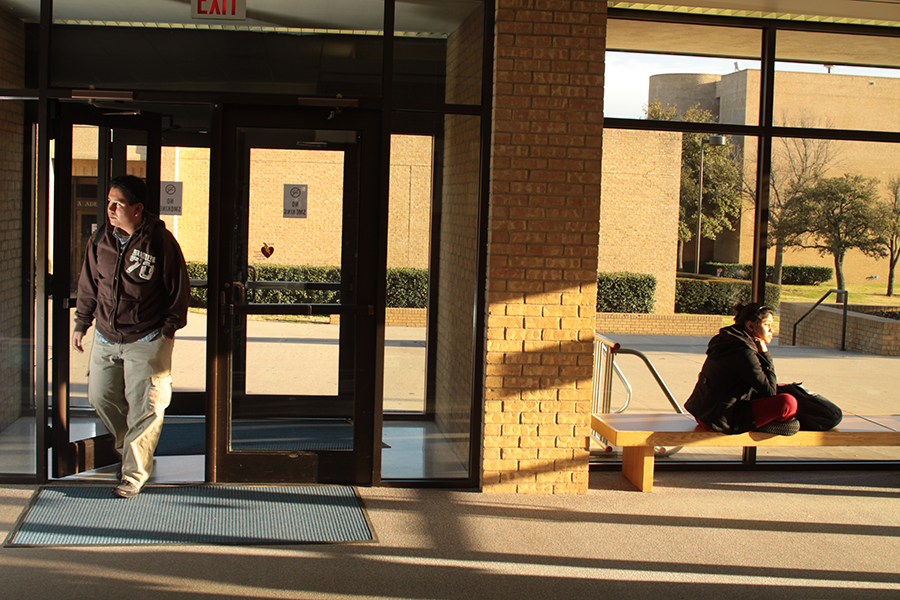By Perla gonzalez/reporter
Within the first year of TCC’s opening its Facebook page in fall 2009, students began inquiring about courses, campuses, professors and then books.
The first inquiry about a textbook came in December 2009, beginning the new wave of selling and buying books on TCC’s Facebook page.
Students started posting lists of obtainable books and pictures that would verify their conditions, contacting each other about the necessary books for a course and making deals for them.
As this activity spread across all five campuses, students became successful booksellers and buyers. They often made a bit more than if they had sold or bought a book at a bookstore.
“I bought three books and sold three on here last semester,” student Steven Bakarich said. “I’m patient in buying and selling. I paid the asking price of the three books I bought without trying to negotiate. Each was less than 50 percent of TCC bookstore’s used price.”
Selling and buying texts started and has continued as a student-initiated endeavor.
“TCC does not have a program designed to allow students to easily sell their textbooks,” said public information services coordinator Rita Parson. “TCC does have a Facebook account.
“Since social media allows students the opportunity to connect easily with one another, several use Facebook to sell their textbooks.”
By tracking recent activity for the past year, it seems some students have found this method successful. During the end and beginning months of a semester, one can see an increase of students posting about books, similar to seeing a line outside a bookstore.
Facebook allows a rather informal sale to come about.
If students are mistaken about a book for a course, they are told so. If they have no clue about what books were used in the past, they also receive advice from fellow classmates.
Students wait about a day on average to receive a response, which is more efficient than waiting a week for a batch of new books to arrive.
Several students like Lashonda Wright are content with the process.
“My books went fast,” she said.
Other students like Ashton Phillips of Trinity River have developed their own processes.
“I have used Facebook to sell my textbooks via my status,” she said. “I have put on my status which textbooks I have for which courses and put a price I was willing to sell them for. I did get a few people who were interested and then met up with them to trade books for money.”
Other universities have created Facebook pages for textbook sales: Taylor University in Indiana and three Canadian schools — York University and Ryerson University in Toronto and the University of Waterloo in Ontario.
These institutions ensure their members are students or part of the university community, utilize search engines so students can find books according to area of interest, course number, title, author or ISBN number and market themselves.
“The book store is ridiculous when it comes to charging you for course materials and just as bad when you go to sell your own books,” reads the York University Book Exchange description. “Sometimes they don’t even buy back your book.”
TCC students have their own ideas to make this service more efficient.
“They should also make it to where it searches within your friends and common friends,” Phillips said. “That way, you know you are in some way affiliated with the people in which you are doing business deals.”
With new forms of communication also come new problems in the communication process. Bakarich experienced one such problem.
“I held the book in midsummer for a student for five days. Then she texted asking me if I would take $20 off because she found it cheaper on Craig’s List,” he said. “I told her to take that deal. I would not have sold it to her anyway after that because her word meant nothing.”
Bakarich said everything worked out in the end.
“I waited until late August, reposted it on here and sold it within hours,” he said.























